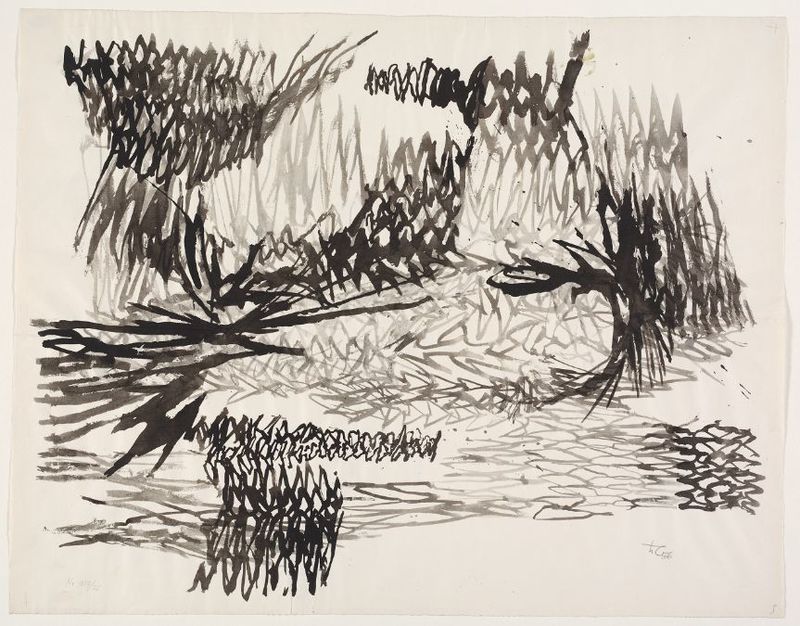09 Feb 2018
Inventur: Art in Germany, 1943-55
Harvard Art Museums
Reviewed by Franklin Einspruch
Five years in the making, "Inventur" examines German artistic production in the decade-plus of recovery after World War II. It takes its name from a Günter Eich poem that describes his meager belongings, including a "precious nail / I keep concealed / from coveting eyes."
That sets the tone for the work from the Forties, executed in whatever media that could be scrounged. Ruins figure prominently. Jeanne Mammen rendered them in Cubism on cardboard. Erwin Spuler painted them isometrically on plywood, the wreckage seeming to extend forever. Wilhelm Rudolph recorded the dismal scene that was Dresden in furious ink lines, piled up like a nest of heartbroken twigs.
Liberalization of markets and taste in the Fifties enlarged the possibilities. Standing out among the abstractionists is Hann Trier, whose woodcuts - carved from tennis racket casings - are lively and urgent. A drawing from 1956 has him working with two hands at once, in a frenzy, as if making up for lost time.
| Exhibition | Inventur: Art in Germany, 1943-55 link |
| Start date | 09 Feb 2018 |
| End date | 03 Jun 2018 |
| Presenter | Harvard Art Museums link |
| Venue | 32 Quincy Street, Cambridge, MA, USA map |
| Image | Hann Trier, Vibration No. 107/56, 1956, black ink on off-white modern laid paper, 19 5/16 x 24 5/8 inches, Harvard Art Museums/Busch-Reisinger Museum, Gift of the Artist through the German Art Dealers Association |
| Links | |
| Share | Facebook, Twitter, Google+ |

